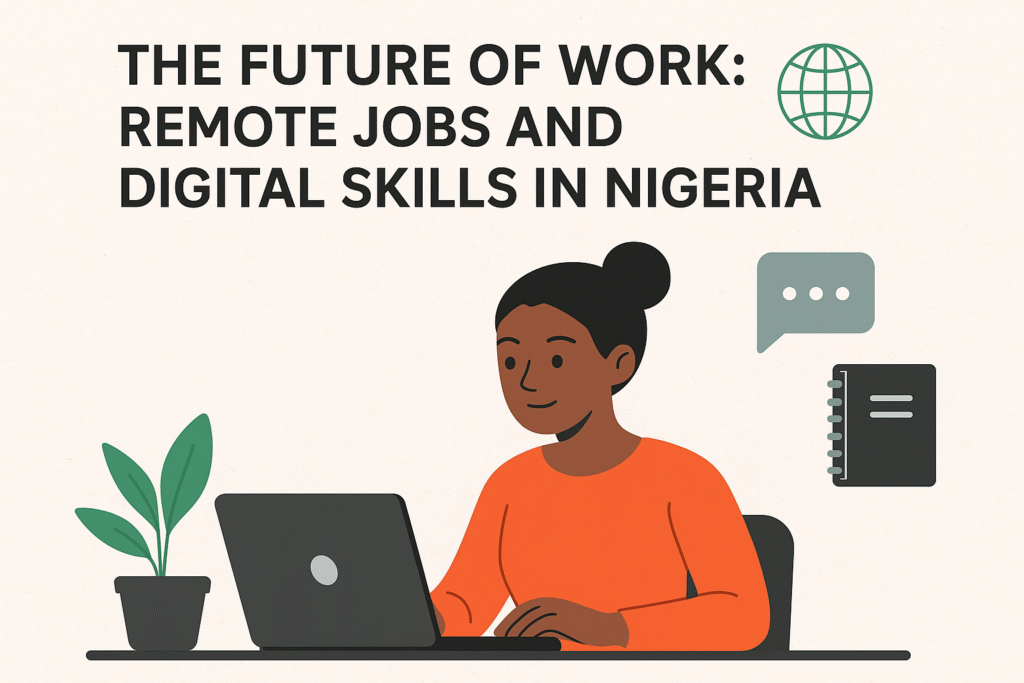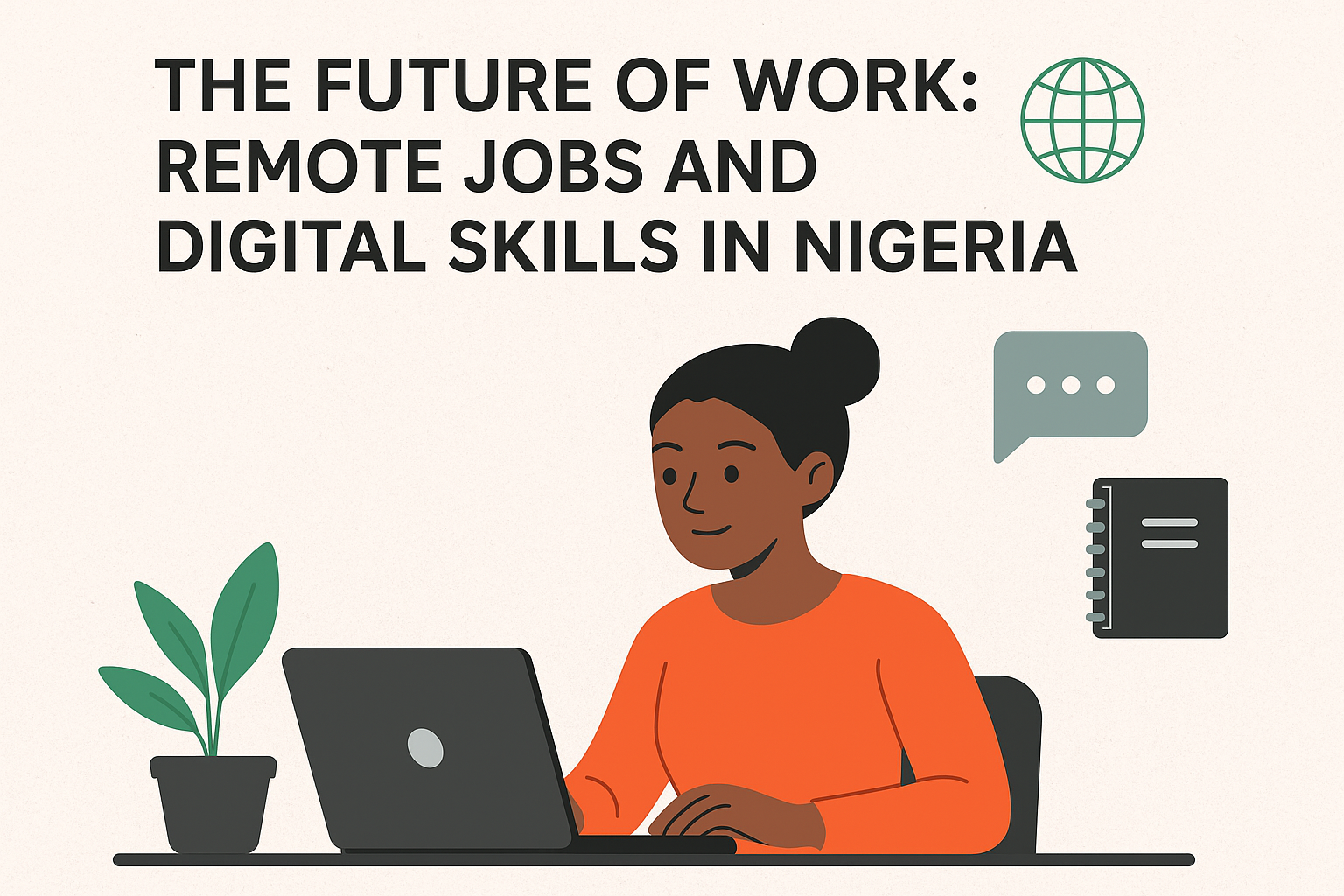The world of work is changing fast. Gone are the days when the only way to earn a living was to sit in traffic for hours just to get to an office. Today, remote jobs and digital skills are opening opportunities for Nigerians to work with companies across the globe without leaving their homes.
But what does this shift mean, and how can you prepare yourself to take advantage of it?

1. Why Remote Work is Growing in Nigeria
- Global shift: After the COVID-19 pandemic, companies realized employees can work effectively from anywhere.
- Talent hunt: International businesses are looking for skilled Nigerians in tech, writing, design, and customer service.
- Cost advantage: Employers save money by hiring remote staff, while workers cut transportation costs.
2. In-Demand Digital Skills
To thrive in the remote work era, you need marketable skills. Some of the most sought-after include:
- Software development (web, mobile, blockchain)
- Digital marketing (SEO, social media, ads)
- Content creation (writing, video editing, podcasting)
- Graphic design & UI/UX
- Data analysis & cybersecurity
- Virtual assistance & customer support
3. Platforms to Find Remote Jobs
Getting a remote job is easier when you know where to look. Popular platforms include:
- Upwork – freelance gigs across multiple industries.
- Fiverr – service-based projects for creatives and tech experts.
- LinkedIn – networking and remote job postings.
- Turing – remote software engineering roles.
- RemoteOK & WeWorkRemotely – global job boards.
4. Benefits of Remote Work
- Flexibility in working hours.
- Access to higher-paying international opportunities.
- Ability to balance work with family or personal projects.
- Location freedom — work from Lagos, Ibadan, or anywhere.
5. Challenges to Consider
- Power supply & internet costs: Unstable electricity and high data prices remain issues.
- Distractions: Working from home requires discipline.
- Isolation: Remote jobs can feel lonely without proper balance.
6. Preparing for the Future
- Invest in upskilling via platforms like Coursera, Udemy, or Google Digital Skills.
- Build a personal brand online (LinkedIn, Twitter, or a portfolio website).
- Network with professionals in your field.
- Stay updated with industry trends.
Conclusion
The future of work in Nigeria is digital, and remote jobs are here to stay. By equipping yourself with in-demand skills, leveraging online platforms, and staying consistent, you can secure opportunities that go beyond borders.
Remote work isn’t just about convenience — it’s about unlocking financial freedom and competing in the global economy.








